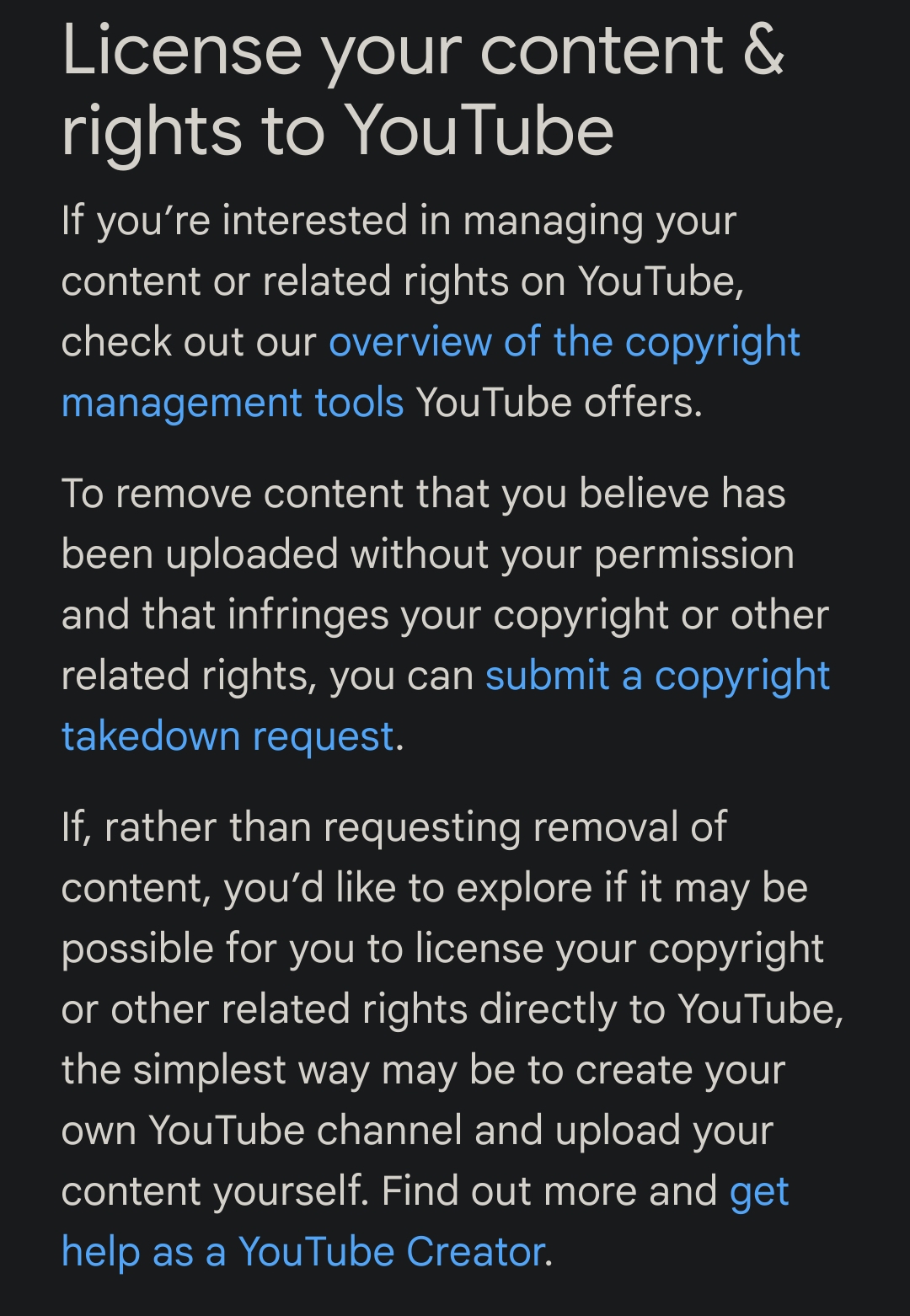Youtube's got business deals with the recording studios, and those studios put their music on Youtube legally, and get a piece of the ad revenue.
Adding to this, Youtube rarely hands out high quality versions for recordings - so the low fi version on youtube is more like a demo. If you have expensive equipment, you will want to pay for a high quality version if you like the tune.
YouTube in this instance doesn't host the content in this instance. They are merely providing a platform that others are allowed to post content to. Part of the agreement you "sign" when you sign up for YouTube is that you won't upload content that doesn't fully belong to you. As a way to help enforce this they have their infamous copyright system in place. YouTube basically takes the stance of you said you owned this, they said you don't we are removing it, and if you think it's unfair you can go to court with them.
YouTube also isn't responsible for the content that gets uploaded to them, this is thanks to a series of lawsuits and legislature that in basic terms says a public forum isn't responsible for its users as long as there is "an effort" to keep misinformation and other harmful things off the platform. For something the size of YouTube this is literally impossible and people know that. YouTube's "effort" is the report functions and copyright protection systems.
In your instance either a different person has posted the album or Pink Floyd has. If it's a different person they can be reported to YouTube and it would be removed. If Pink Floyd did then it's entirely legal.
There are artists who choose to upload their stuff to YouTube.
Pink Floyd has their own YouTube channel.
It is no doubt a calculated business decision.
What do you guess it will cost, and what will you gain.
Another thing is that it's generally not that difficult to get permission to use other peoples music.
There are standard systems and standard rates for that.
So if I want to use Pink Floyds music I can simply check whether they have opened up for that possibility ( and pay), and I'm good to go.
Ok, cool. Nice to know that Pink Floyd is now in the business of selling ads.
That's pretty much it. If instances want to legally broadcast copyrighted content, they need to go through the licensing system. Generally involves giving them money, and to afford it, chances are good they'll need to put up ads.
What is the bottom line here? Is Youtube big enough to be allowed to publish full albums of Pink Floyd? Or does Youtube pay a dime to Universal so they are allowed to publish the audio content?
The short answer to both is likely, yes.
Google has a lot of money and can prolong court cases, you'll notice most copyright bullies tend to go after the small fish so they can get a precedent before using it against the bigger fish. What protects them the most is that they have installed their copyright system, Content ID, which allows Universal to upload hashes for their content and it will then hunt for any video with that in it, at which point the automated system is designed to block the content or leave it up if that's the publishers wants or monetize the content and send the money to the publisher.
My question is: If Youtube can go away Scot's free with this, why can't the fediverse? If we start to host massive video/audio content, what will happen to the fediverse?
The owner of those instances will likely be sued, if their server host doesn't kick them to the curb first, probably both.

What about an artist just sue them instead, for repeatedly distributing their music without permission? If a russian website did this it would have been nuked into orbit by now.
Fediverse
This magazine is dedicated to discussions on the federated social networking ecosystem, which includes decentralized and open-source social media platforms. Whether you are a user, developer, or simply interested in the concept of decentralized social media, this is the place for you. Here you can share your knowledge, ask questions, and engage in discussions on topics such as the benefits and challenges of decentralized social media, new and existing federated platforms, and more. From the latest developments and trends to ethical considerations and the future of federated social media, this category covers a wide range of topics related to the Fediverse.